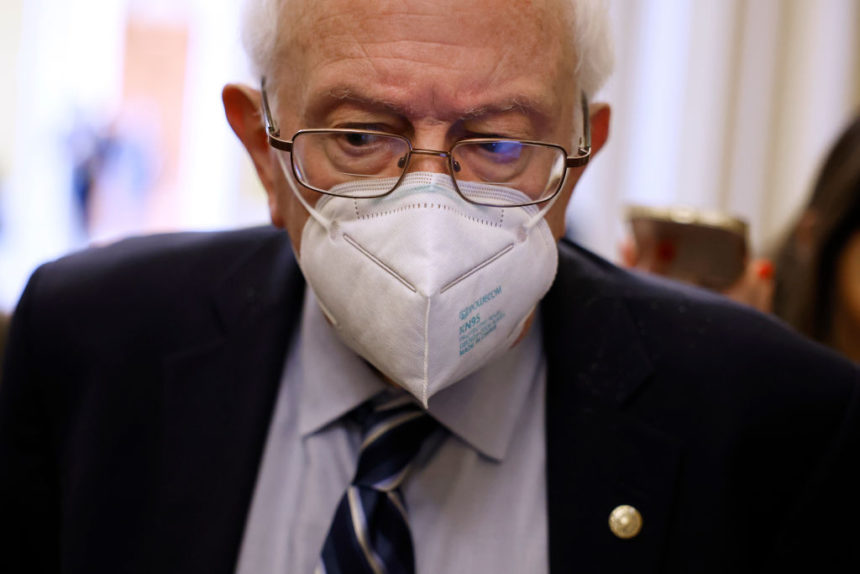The shape of the national healthcare policy debate is going to look and sound a little different starting next month.
Sen. Bernie Sanders, (I-VT), is set to lead the Senate Health, Education, Labor and Pensions (HELP) Committee beginning in February and seeking to use his considerable political profile to push for reduced healthcare costs.
The HELP Committee, long considered one of the most influential Senate panels, holds sway over countless aspects of the healthcare industry, including aging, biomedical research, insurance and drug pricing.
Shortly after the midterms, Sanders announced he would step into the role of chair of the committee after the current chair, Sen. Patty Murray, (D-Wash.), said she would leave the position to head the Senate Committee on Appropriations.
Having twice run for the Democratic presidential nomination, Sanders’ health policy leanings are hardly a mystery.
Sanders has been a strong proponent of instituting a Medicare for All-style system in the U.S. that would establish universal healthcare for Americans and sharply critical of the business practices of the pharmaceutical industry.
Now, he’s expected to wield significant political power on Capitol Hill that could shape health-related measures on the federal level for years to come.
In a New Year’s video, Sanders laid out the broad foundation of his plans in the Senate HELP role, specifically calling out a “cruel and dysfunctional healthcare system” that he said prioritizes profit for insurance and drug companies over healthcare for ordinary people.
Sanders argued that the U.S. is a “nation that spends twice as much per capita on healthcare as the people of any other nation.” He added that “$13,000 [in healthcare spending] for every man, woman and child in this nation… is an astronomical sum of money, and it’s unsustainable.”
Additionally, Sanders pointed to the poor health outcomes and low life expectancy in the U.S. compared to other countries – despite the fact that it spent $4.3 trillion in national health spending in 2021.
“The reason for that is that the function of our healthcare system is not to guarantee healthcare for all people, but to make as much money as possible for our insurance companies,” Sanders said. “Drug companies are making huge profits while people split their life-saving pills in half, because they can’t afford them.”
While Sanders is perhaps best known for advocating for Medicare for All, it appears his biggest focus won’t be on pushing for implementing the single-payer system as he assumes the HELP committee post.
That’s partially due to the fact that following the midterm elections in 2022, Congress is split, with neither Republicans nor Democrats having enough of a majority to be able to pass wide-sweeping legislation. Policy experts expect 2023 to be a year with fewer monumental health policy packages due to gridlock in Congress.
Instead, he stressed the importance of pursuing bipartisan policies that will work to reduce prescription drug costs.
Advancing further drug pricing regulations is a policy position that has maintained support from several sides of the aisle: Republicans, Democrats and what Sanders calls “conservative Democrats.” It’s why he’s aiming to push drug pricing further as one of his first priorities.
Last year, Congress passed historic drug pricing regulation as part of the Inflation Reduction Act, which gave Medicare the power to negotiate the price of certain expensive Part B drugs. On Wednesday, the Department of Health and Human Services released a timeline for the rollout of the drug pricing measures, which begins in September.
However, Sanders has said that the legislation, which applies to a certain set of drugs, isn’t enough.
On Tuesday, he wrote a letter to Moderna urging the drugmaker to resist increasing the price of its COVID-19 vaccine, Spikevax, now that the government will no longer buy up the shots. Pfizer similarly announced recently it would be hiking up the price of its vaccine, Comirnaty, to $110 to $130 per dose.
“I have very deep concerns about that decision and the impact that it will have on the federal budget, the cost of private insurance and the unnecessary deaths that may occur because millions of Americans may not be able to afford the vaccine at the new cost,” Sanders wrote.
Additionally, Sanders called out Moderna CEO Stéphane Bancel on Tuesday for his billionaire status in comparison to Jonas Salk, the inventor of polio.
Though Sanders has lofty goals while helming the HELP committee, the pharma industry and lobbyists representing insurers and health systems are preparing a counter-attack, according to POLITICO.
Pharma lobbying groups have long-resisted drug pricing regulation, objecting that these restrictions would hamper innovation and drug development. With Sanders holding an explicit anti-lobbying and anti-corporate stance, these industry groups will have to find new ways of enacting their influence.
“It’s not status quo… we’re going to have to be creative with patient groups to get him to listen,” one lobbyist told POLITICO. “If I’m going to be completely honest, we’re still trying to figure out what we’re going to do.”
To read a January 2024 article about the state of the Bernie Sanders-Big Pharma standoff, click here.







